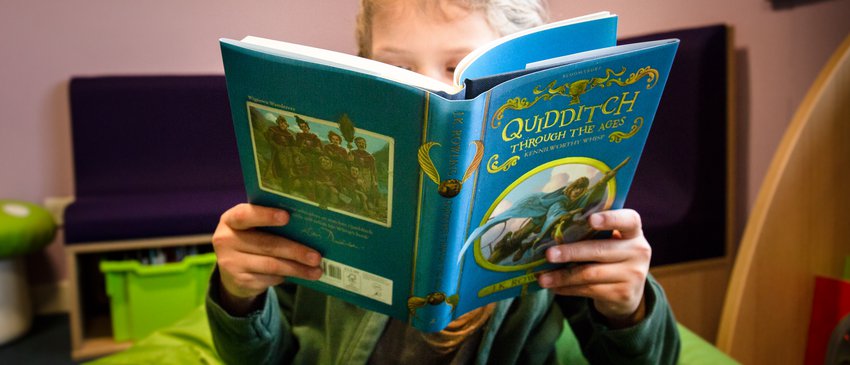Reading

Our research into reading explores reading enjoyment, reading habits and reading motivation. It highlights how these have changed over time and how they are impacted by sociodemographic background, access to books and the home environment. Our Annual Literacy Survey has been tracking changes in enjoyment, attitudes to and behaviours in reading since 2005 and is the biggest study of its kind in the world.
We also explore book ownership, library provision and other issues around access to reading.
Key statistics in reading (2025 findings)
- Just 1 in 3 (32.7%) children and young people aged 8 to 18 said they enjoyed reading in 2025. This is the lowest level since we first asked the question in 2005.
- Only 1 in 5 (18.7%) children and young people aged 8 to 18 said that they read daily, again, the lowest levels since 2005.
- In 2024, we found that children and young people who enjoyed reading (n = 1,211; M = 109.13) had higher average (mean) standardised reading scores than children and young people who didn’t enjoy reading (n = 2,593; M = 102.65). This difference was statistically significant.
Read our 2025 reading research report in full.
Key statistics in book ownership (2024 findings)
- In 2024, 1 in 8 (13.3%) children and young people aged 5 to 18 said that they did not have a book of their own at home, while nearly 9 in 10 (86.7%) children and young people said that they did.
- 1 in 8 (12.4%) 8- to 18-year-olds who received free school meals (FSMs) told us that they did not have a book of their own.
- This compares with 1 in 13 (8.0%) of their peers who did not receive FSMs.
Latest research on reading
-
This report outlines findings from our 2025 Annual Literacy Survey, when children and young people's reading enjoyment and frequency were at an all-time low.Learn more about Children and young people's reading in 2025.
-
Based on data from our 2024 Annual Literacy Survey, this report tracks book ownership in children and young people in the UK.Learn more about Book ownership in 2024.
-
A report exploring engagement with poetry in all its forms, demonstrating the important role poetry can play in the lives of our children and young people.Learn more about ‘Where a quiet voice can become a loud voice’ Children, Young People and Poetry in 2024.
What else we know about reading
- Not reading at the expected level puts children at an increased risk of experiencing unemployment and poor health as adults. Discover more in our report on Literacy and life expectancy.
- Technology can provide a route into reading for traditionally reluctant less engaged readers.
- Strong reading skills have been shown to improve children’s academic attainment across a range of subjects, including English, maths and science. Find out more.

Our work on reading
-
Reading for enjoyment is key to improving literacy skills. The Young Readers Programme runs fun events where children can choose books to take home and keep.Learn more about Young Readers Programme.
-
Each term we run exciting challenges and competitions available to all UK schools to encourage reading for pleasure, develop reading stamina and increase reading diversity.Learn more about Competitions and Reading Champions Challenges.
-
Engage with research and develop sustainable strategies to embed a culture of reading in your school and classroom.Learn more about Reading for Pleasure CPD.





